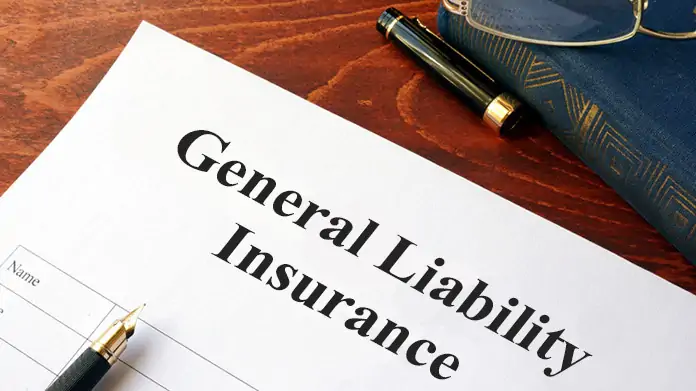Introduction to Liability Insurance
Liability insurance is one of the most important safeguards a business owner can have. It shields companies from the financial risks associated with lawsuits, damages, or losses that may occur in the course of their operations. For businesses big and small, liability insurance not only provides peace of mind but also ensures that unforeseen circumstances won’t lead to financial ruin. Whether a client claims their injury was caused by your negligence or your product allegedly caused harm, liability insurance acts as the first line of defense in these scenarios.
Understanding Business Risks
Every business, regardless of size or industry, is exposed to certain risks. These risks might stem from unhappy clients, unforeseen accidents, or administrative errors. For instance, a customer might slip and fall while visiting your store, or a defect in a product you sell might cause harm. Such incidents can lead to costly lawsuits, even if the claims against your business are unfounded. Recognizing the inherent risks in your operations is the first step toward protecting your business against financial liabilities. Liability insurance is designed to mitigate the impact of these risks.
Types of Liability Coverage
There are several types of liability insurance tailored to meet specific business needs. General liability insurance, often the most basic, covers claims of bodily injury, property damage, or personal injury caused by your business operations. Professional liability insurance is ideal for service-based businesses, as it protects against claims of errors or negligence. Product liability insurance is crucial for businesses involved in manufacturing or selling goods, ensuring they’re covered against claims arising from defective products. Regardless of your industry, understanding the variety of liability coverage options is essential to tailor protection for your business’s unique requirements.
Assessing Your Business’s Needs
Not every business has the same liability insurance needs. For example, a small boutique may not require the same level of coverage as a construction company. To determine the appropriate coverage, evaluate the nature of your business, the risks associated with your industry, and the likelihood of potential claims. Analyzing factors like your clientele, the value of your assets, and any previous history of claims can also provide insight into what level of insurance your business requires. This step is critical in ensuring that you’re adequately protected without overspending on unnecessary coverage.
Choosing the Right Policy
Finding the right liability insurance policy can feel like navigating a maze. With countless providers offering varying levels of coverage and terms, it’s essential to compare policies carefully. Start by identifying the essential protection you need, whether it’s general liability, professional liability, or a combination of coverages. Working with an insurance broker can help simplify this process, as they can match your business’s needs with the right policies. Be sure to read the fine print and ask questions about exclusions, additional coverage options, and any deductibles to ensure you’re choosing a policy that fits seamlessly into your business plan.
Factors Affecting Insurance Costs
Liability insurance premiums are influenced by multiple factors, and understanding them can help you make informed decisions. The size of your business, the industry you operate in, and the inherent risks associated with your activities all play a role. For instance, a business in a higher-risk industry like construction or healthcare typically pays more than a low-risk office-based company. Additionally, the coverage limit and deductible amount you choose will directly impact your costs. Other considerations include the business’s claim history, the number of employees, and even geographical location. Being aware of these factors helps you budget and potentially reduce costs by implementing risk management strategies.
Claims Process and Management
Filing a claim under your liability insurance policy doesn’t have to be an overwhelming experience. Understanding how the claims process works can make it smoother and less stressful. When an incident occurs, document everything—the date, time, parties involved, and any related evidence. Report the details promptly to your insurance provider, as delays can complicate the process. Once your claim is approved, the insurance company steps in to cover legal fees, settlement costs, or damages within the policy terms. An effective claims management process helps ensure a swift resolution, minimizing disruptions to your business.
Preventing Liability Issues
While liability insurance provides critical protection, the best-case scenario is avoiding incidents altogether. Taking proactive measures to reduce risks can significantly lower the likelihood of claims. Regularly updating safety protocols, training your staff to handle responsibilities properly, and maintaining high-quality standards for your products and services are just a few ways to limit liability concerns. Clear contracts with clients, transparent communication, and a well-documented incident reporting process also go a long way in preventing disputes. The fewer liability issues your business faces, the smoother your operations will be.
Reviewing and Updating Coverage
Business needs are not static—they evolve with growth, changes in operations, and shifts in industry standards. This is why it’s vital to periodically review and update your liability insurance coverage. For example, if your business expands to a new state or adds new products or services, your existing policy may need adjustments. Failing to maintain up-to-date coverage could leave your business vulnerable to risks. Regularly consulting with your insurance provider ensures that your policy reflects the current needs of your business and continues to offer comprehensive protection.
Protecting Your Business for Long-Term Success
At its core, liability insurance is about safeguarding your business’s future. No entrepreneur wants to envision worst-case scenarios, but preparation is key to resilience. By investing in the right liability coverage, businesses are better positioned to handle challenges with confidence, leaving them free to focus on growth and success. Insurance isn’t just about mitigating risks—it’s about ensuring stability, credibility, and trust with clients and employees alike. Don’t wait until an incident occurs; take steps today to secure your business for the long haul.
FAQ
1. Is liability insurance mandatory for all businesses?
While liability insurance isn’t legally required in all states or industries, some clients, landlords, or contracts may require proof of coverage. Even if it’s not mandatory, having liability insurance is highly recommended to protect against unforeseen claims.
2. Can liability insurance cover intentional acts?
Generally, liability insurance does not cover intentional wrongdoing or fraudulent activities. Policies are designed to cover accidental or negligent claims, not deliberate misconduct.
3. How do I find the best insurance provider?
Look for providers with experience in your industry, transparent policies, and good customer reviews. Working with an insurance broker can also help you efficiently compare options.




